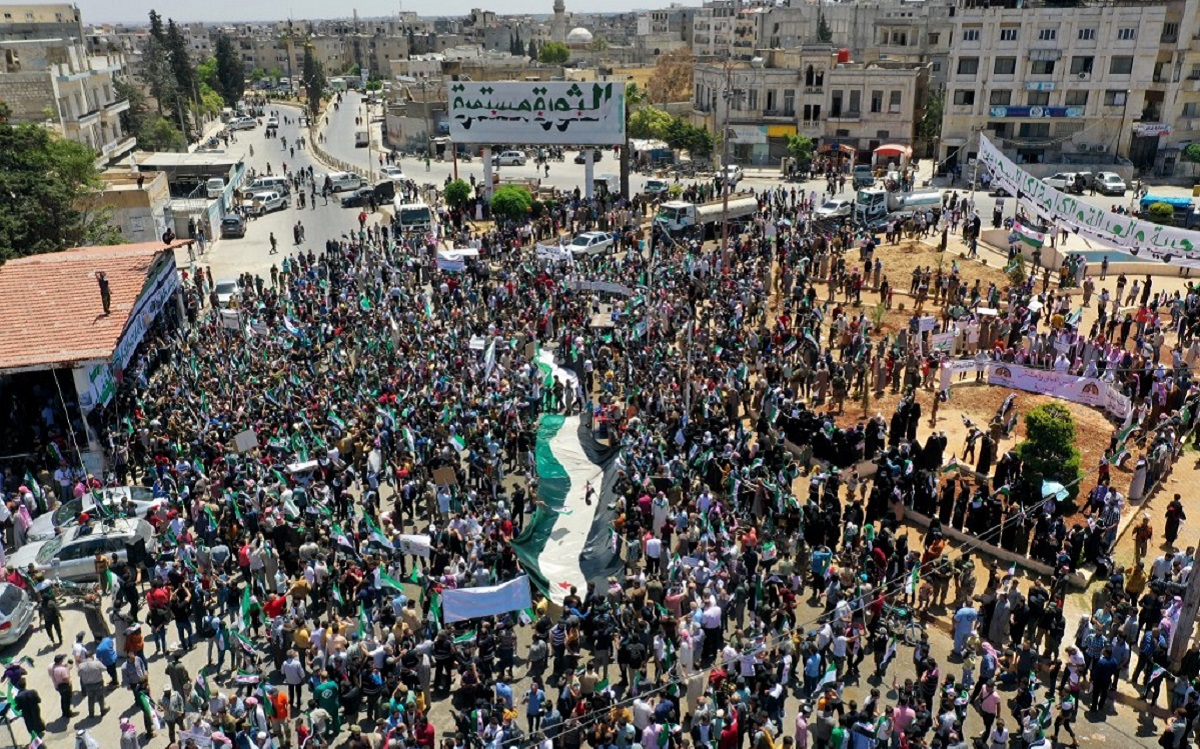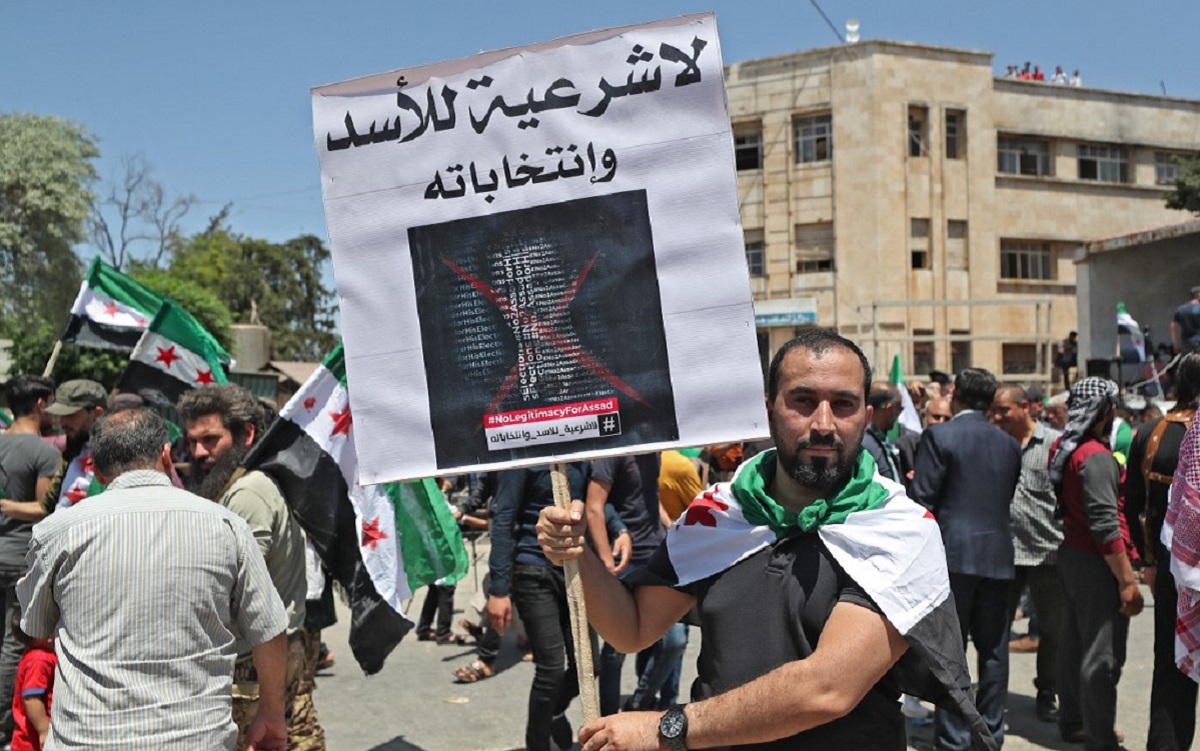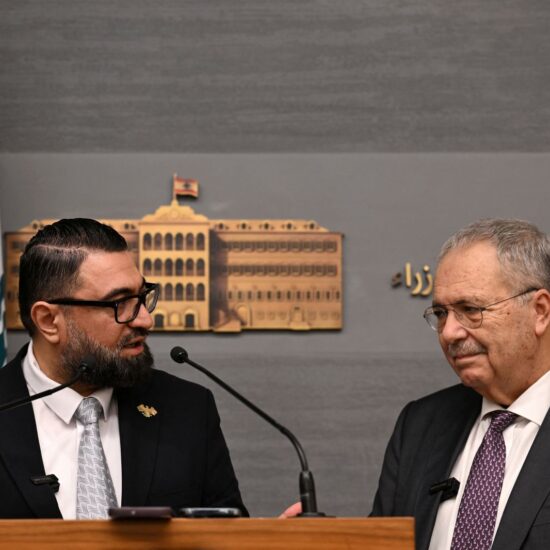
There has been little vocal opposition to the Syrian presidential elections, which are viewed by many as merely symbolic, with only sporadic protests appearing as voting got underway.
After a decade of brutal civil war that has claimed the lives of around half a million and displaced millions, Syrian President Bashar al-Assad is facing the second presidential election since the start of the conflict and is expected to win another seven-year term in office and continuing the over 50 years of Assad rule in Syria.
The Syrian regime has reestablished its rule across the majority of the country with only a few pockets remaining in open opposition to the regime.
Daraa has been the main focal point for Syrians speaking out against the elections with areas like al-Harak, in eastern Daraa, refusing to even open polling stations in their governorate. Pictures of Syrians protesting against the rigged presidential poll have spread on Syrian opposition social media channels on the eve of the elections.
On Wednesday, however, a fairly large demonstration against what protesters called the illegitimate elections started in the northeastern opposition-held city of Idlib.
In rebel-held northwestern Syria, home to three million people, opposition activists distributed mock campaign posters ridiculing Assad.
Danny Makki, a freelance journalist and non-resident scholar at the Middle East Institute, explained that protests and opposition have been concentrated in parts of Syria like Daraa or Idlib due to the continued presence of rebels and militant groups in the areas.
“Other provinces and districts especially those around Damascus and Aleppo lack the willpower and the energy to return to conflict and thus follow the government line completely,” Makki told NOW.

Discreet dissent in government-controlled regions
While Daraa and Idlib have been more outwardly vocal in their opposition to the May 26 election, other parts of the country have expressed opposition more subtly, by using anti-Assad leaflets, writing on walls, and defacing posters of the Syrian president.
Vienna-based freelance journalist Ahed Mourad pointed to the city of Suweida in southern Syria as an example of this subtle opposition, adding that he believes that these elections could give rise to renewed protests.
“We believe that the elections were the reason for the calm conditions, as the ruling regime tried to impose power,” the freelance journalist told NOW.
“But it seems that it will be the reason for the revival of the street movement and the emergence of protests.”
Opposition abroad has also gained little ground in countering the Syrian regime.
According to Mourad, the majority of efforts are focused on legal cases and changing public opinion on the Syrian regime and opposition groups in order to gain more international support.
“The majority of it is about filing legal cases and is directed to the courts, but we believe that what happened from the mobilization of international public opinion on the issue of Palestine gave hope to the Syrians in their ability to mobilize public opinion around their case,” he explained.
However, Makki argued that any opposition abroad “lacks the power and the means” in Syria to be an effective resistance outside of public statements “giving the impression of fading away.”
“They are still present yet lack the means to be a true alternative to Bashar al-Assad,” he said.
Both Makki and Mourad agree that there is currently a lack of legitimacy for any opposition body, with Mourad claiming that any real opponents to the regime are still “trying to organize themselves, and live in the hope of change.”
Makki added that foreign opposition is not really a concern for Assad as the peace process has been slow and poses no immediate risk to the regime. Rather, he argued that the biggest threats to the Syrian president are domestic issues.
“The most dangerous opposition to Assad is the domestic one, which springs from the poor economic situation and discontent with corruption among other things,” he stated.
“This is the type of opposition which eats at his popular base and is tough to manage as many of those with legitimate grievances spent the last 10 years defending his government.”
Nicholas Frakes is a multimedia journalist with @NOW_leb. He tweets @nicfrakesjourno.








